Programs
Featured Program
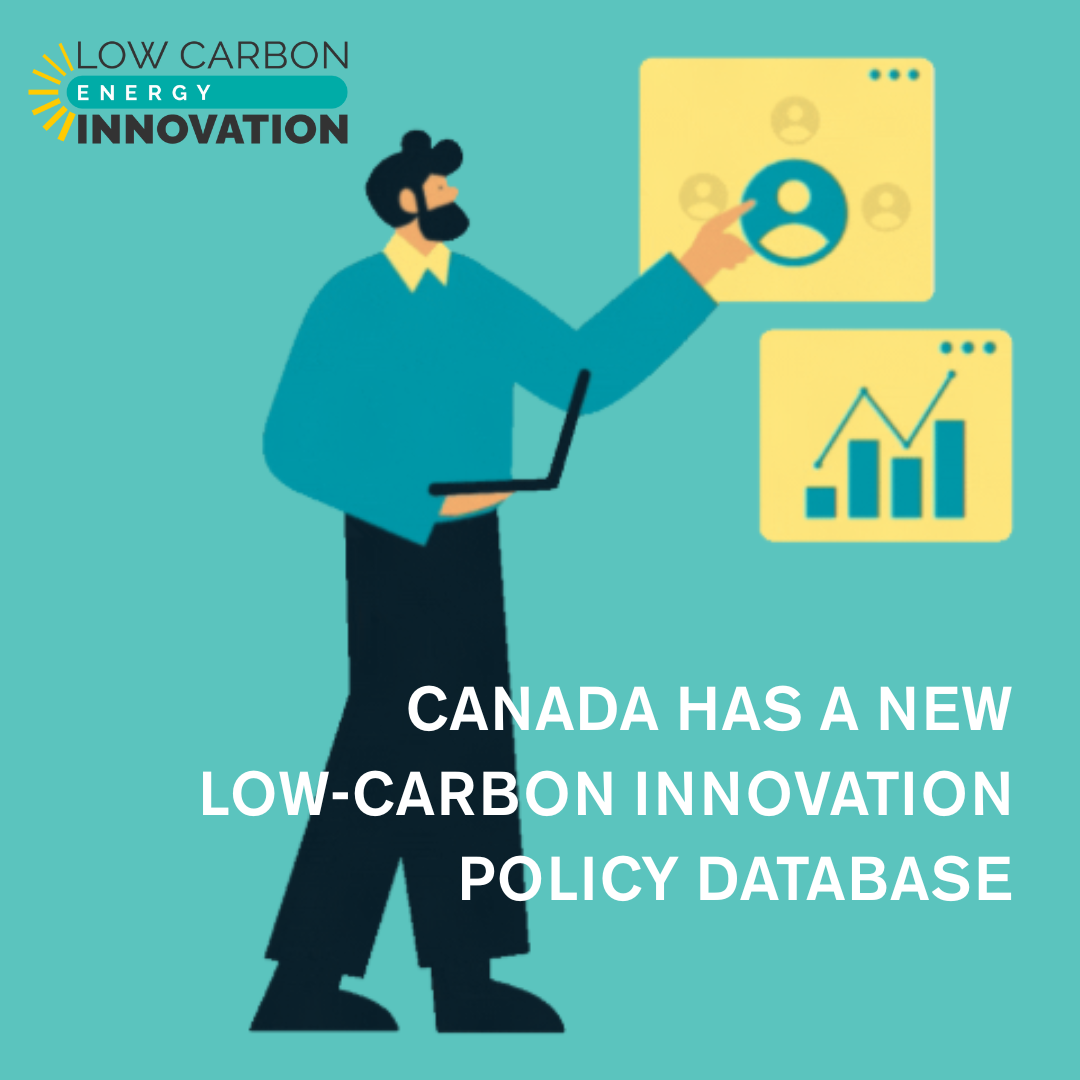
Canada’s Low-Carbon Energy Innovation Policy Database
Welcome to the national database of assessments of policies and factors that directly or indirectly impact low-carbon innovation across Canada’s provinces and territories.
Programs
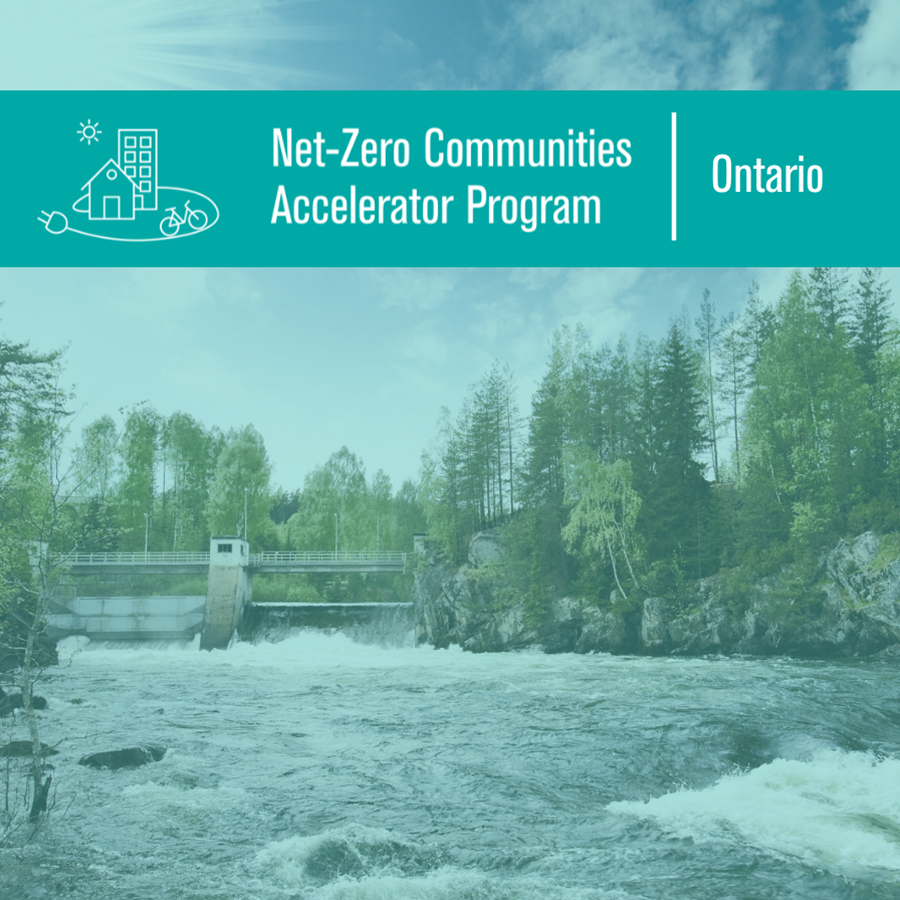
Ontario NCA
QUEST Canada’s NCA Program has been recognized with a prestigious 2025 Clean50 Top Project Award. The annual awards recognize initiatives based on their innovation, their ability to inform, and to inspire Canadians.
QUEST Canada’s Ontario NCA Program enables Ontario communities to reach net zero by equipping them with the tools and knowledge to develop and implement community energy and emissions plans and understand the net economic benefits they can provide.

Past participant in the NCA? Please Refer-a-Neighbour to our Program!
We need your help, in referring us to a New Brunswick municipality!
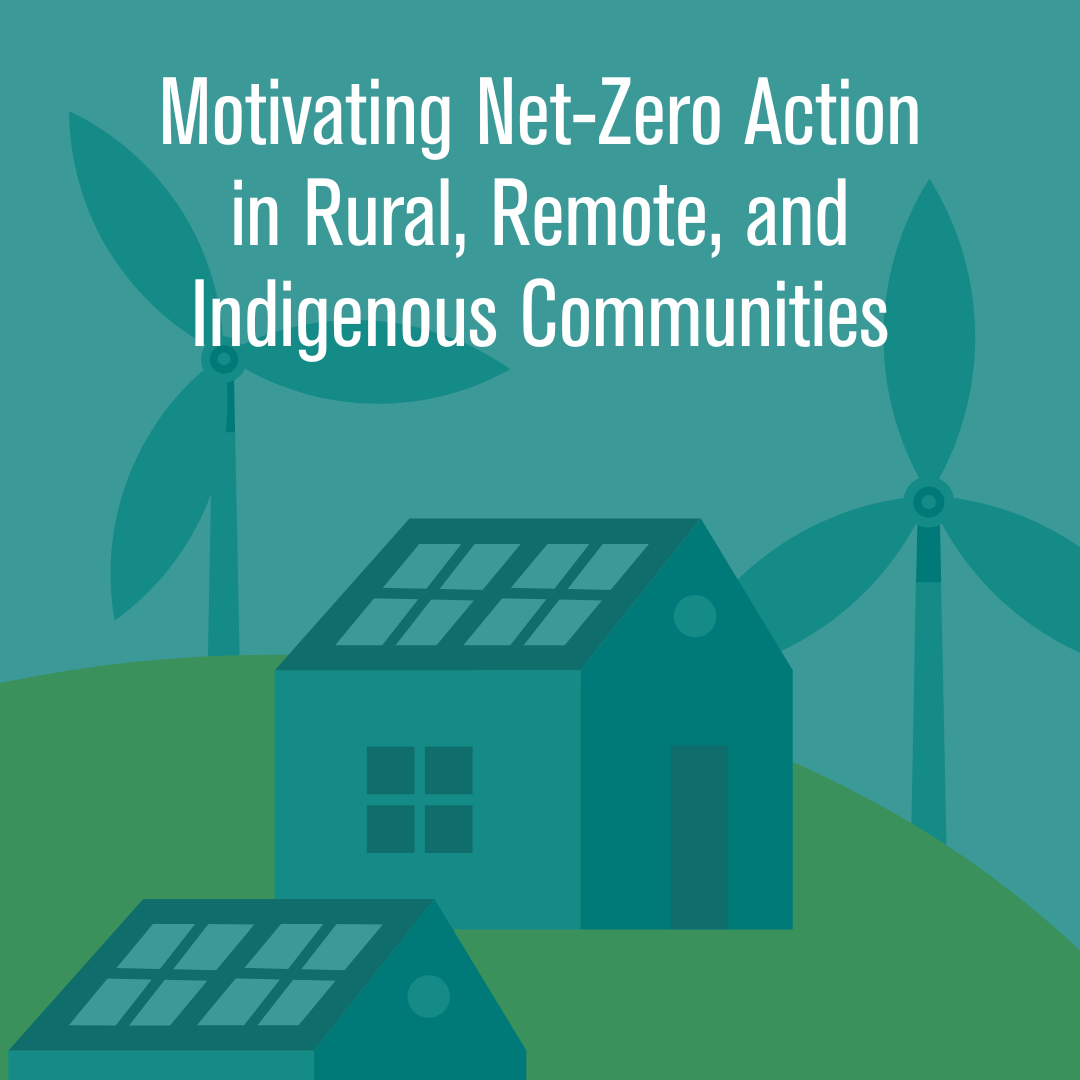
Motivating Net-Zero Action in Rural, Remote, and Indigenous Communities
QUEST Canada’s Motivating Net-Zero Action in Rural, Remote, and Indigenous Communities (MNZA) research project explores the motivations, challenges, and energy opportunities low-density areas across Canada face as they transition to net-zero.
QUEST Canada’s Pan-Atlantic NCA Program enables Atlantic Canada communities to reach net zero by equipping them with the tools and knowledge to develop and implement community energy and emissions plans and understand the net economic benefits they can provide.
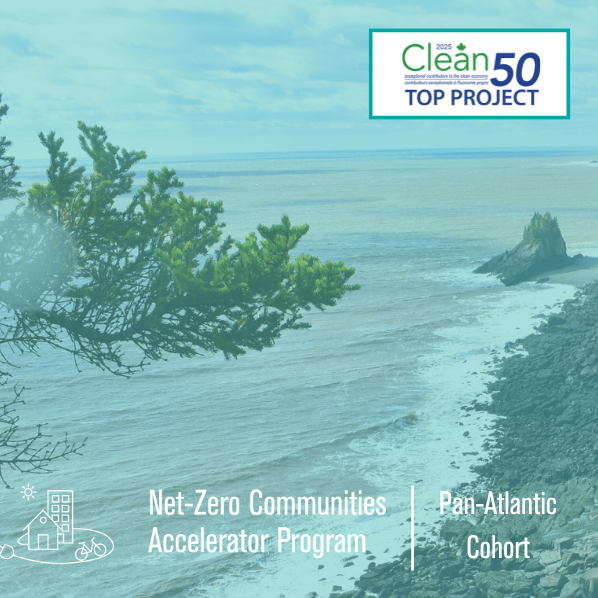
Pan-Atlantic NCA
QUEST Canada’s Net-Zero Communities Accelerator (NCA) Program has been recognized with a prestigious 2025 Clean50 Top Project Award. The annual awards recognize initiatives based on their innovation, their ability to inform, and to inspire Canadians.
QUEST Canada’s Pan-Atlantic NCA Program enables Atlantic Canada communities to reach net zero by equipping them with the tools and knowledge to develop and implement community energy and emissions plans and understand the net economic benefits they can provide.

Energy Transition Policy Program
The objective of QUEST Canada’s Energy Transition Policy Program is to engage in a collaborative discussion with energy decision-makers to align climate and energy transition planning and policies that will facilitate sustainable community energy systems in support of a net-zero carbon (carbon neutral) economy by 2050.
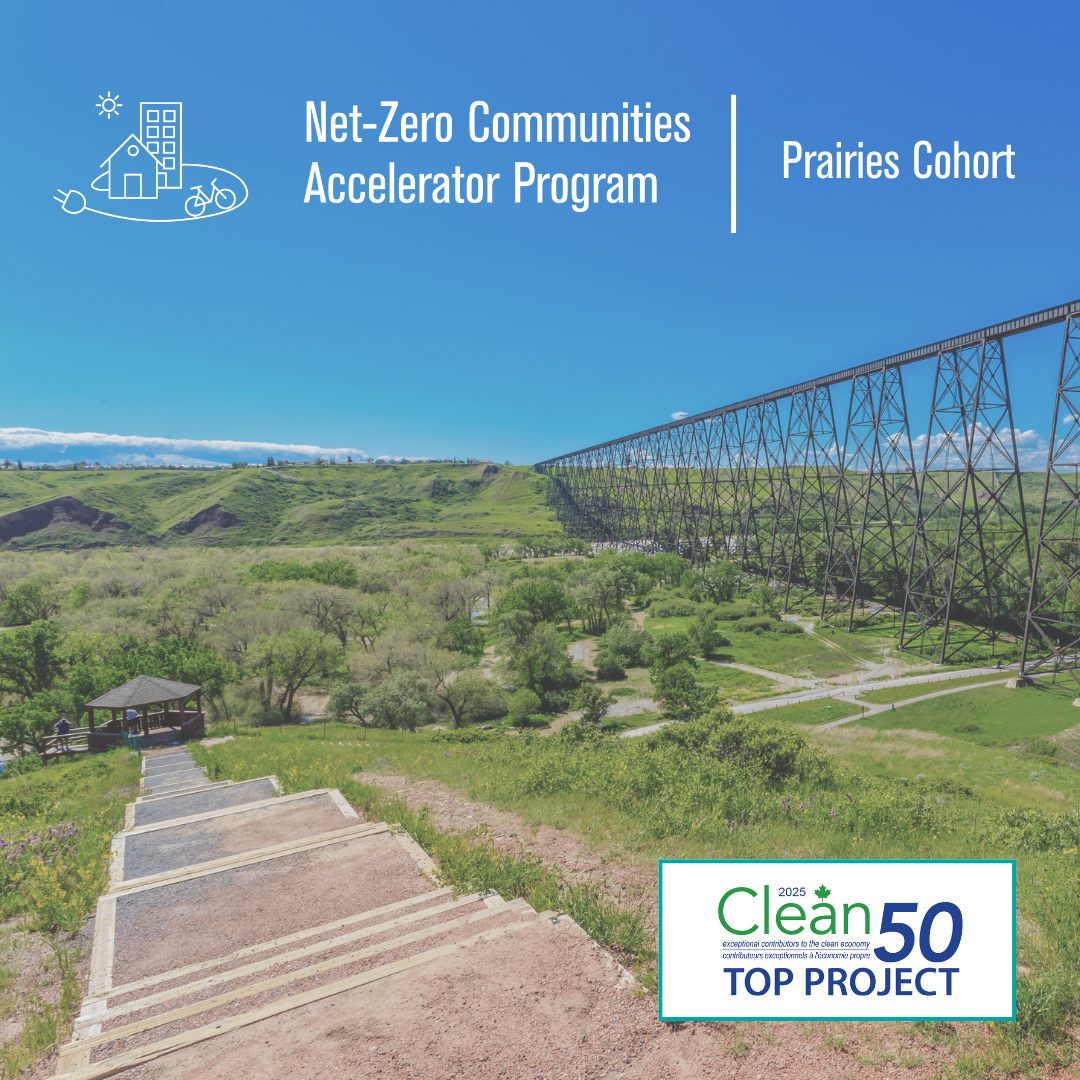
NCA: Prairies Cohort
The NCA Program’s Prairies Cohort, is currently comprised of fifteen participating communities from Alberta, Manitoba, and Saskatchewan.
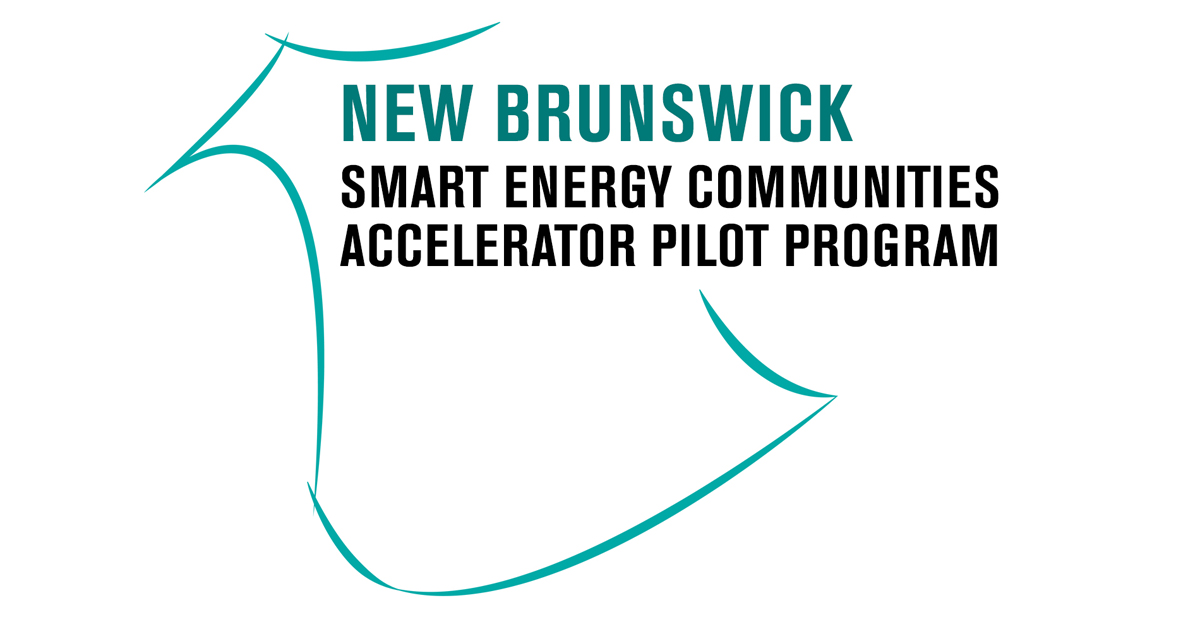
New Brunswick Smart Energy Communities Accelerator Pilot Program
The NB SECA Pilot Program successfully established a community energy planning accelerator to assist a series of New Brunswick communities and one First Nation, equipping them with the tools and knowledge to develop and implement community energy plans and understand the net economic benefit they can provide.

Accelerating Implementation of Renewable Energy for Indigenous Communities
Accelerating Implementation of Renewable Energy (AIRE) for Indigenous Communities is a three-year project designed to help rural and remote Indigenous communities reach emission reduction targets by increasing their capacity to plan and implement land-based renewable energy initiatives (solar, wind, biomass, and geo-thermal). This project supports rural, remote Indigenous communities on their pathway to net-zero.
Tools

Canada’s Low-Carbon Energy Innovation Policy Database
Welcome to the national database of assessments of policies and factors that directly or indirectly impact low-carbon innovation across Canada’s provinces and territories.
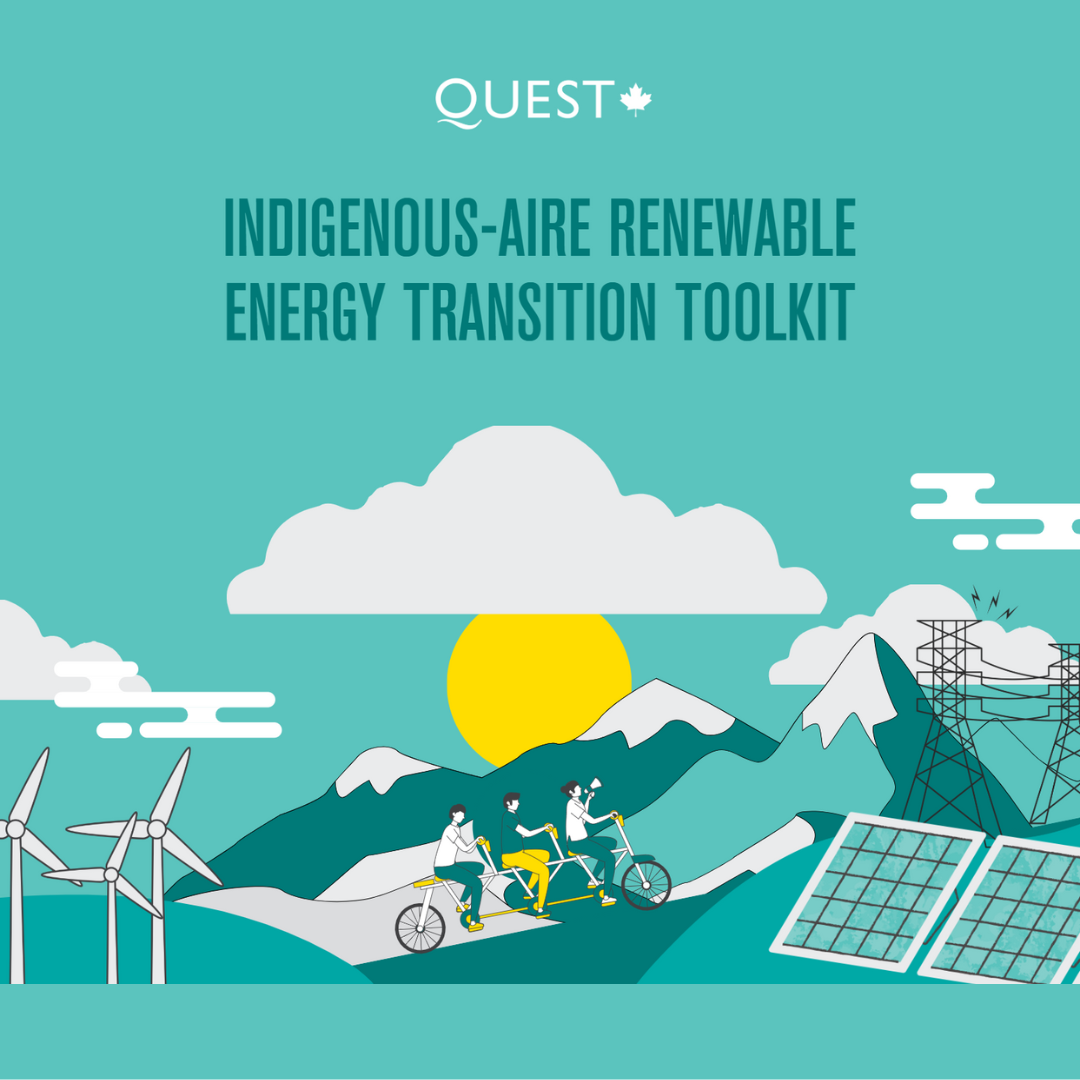
Indigenous-AIRE Renewable Energy Transition Toolkit
Welcome to the I-AIRE Renewable Energy Transition Toolkit, an invaluable resource crafted with the unique needs and aspirations of Indigenous communities in Saskatchewan, Alberta, and Manitoba in mind.
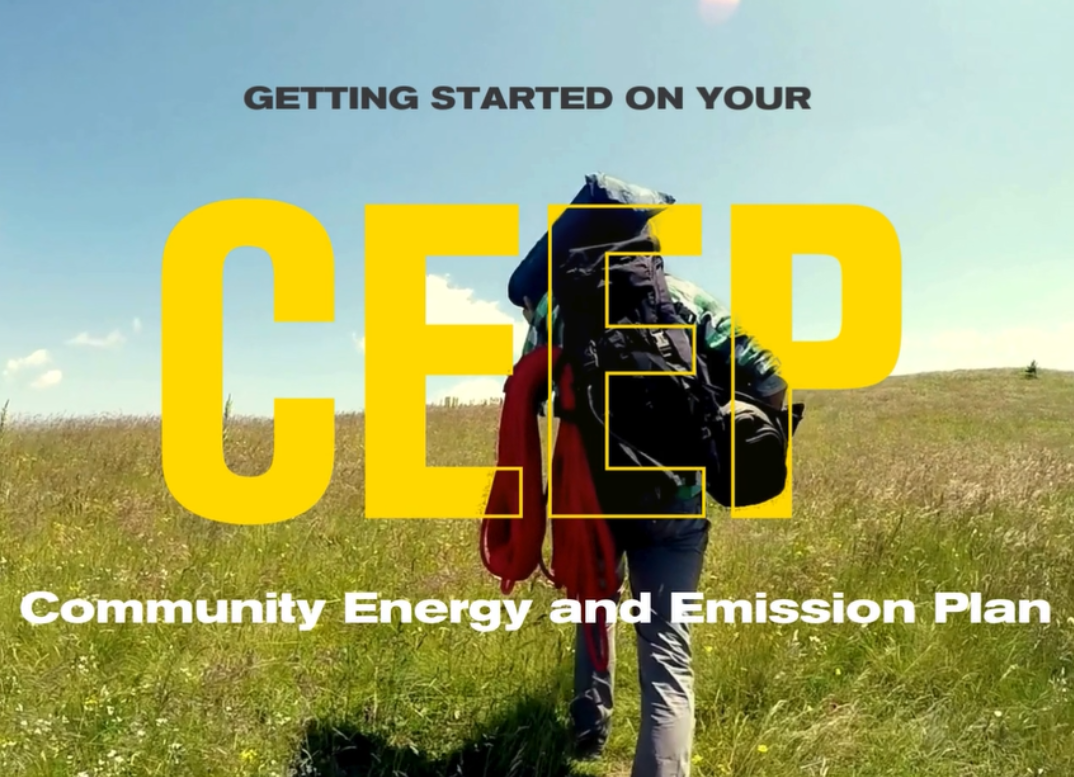
Community Energy and Emission Planning Resource Hub
If you’re an NB municipal leader or official, you’ll find everything you need to create a CEEP for your community: from developing a vision to setting targets to implementation and reporting.

Equitable Engagement
The Equitable Engagement project works to incorporate Indigenous knowledge as well as equity, diversity, and inclusion (EDI) considerations into QUEST Canada’s capacity building-based initiatives. The aim of this project is to ensure current and future participating communities are equipped with the tools, resources, and knowledge required to engage all stakeholders on the pathway to a durable and just net-zero future.

Promoting Energy Efficiency in Land Use Planning Training
The NB Environmental Trust Fund awarded funds to QUEST Canada and Decodesign to train professionals on promoting energy efficiency through land use planning design and smart growth principles integrated into development projects.

Why are we limiting our ability to achieve net-zero?
QUEST Canada has heard from a large number of diverse stakeholders wanting a more comprehensive net-zero dialogue – one that builds on electrification with the deployment of a diversity of additional local low-carbon energy solutions.

Community Energy Planning Alignment & Implementation Framework
Community Energy Planning Alignment & Implementation FrameworkWhat is the CEP Alignment and Implementation Framework? A Community Energy / Emissions Plan (CEP) defines a community’s priorities around energy and greenhouse gas emissions. Responding to the global...
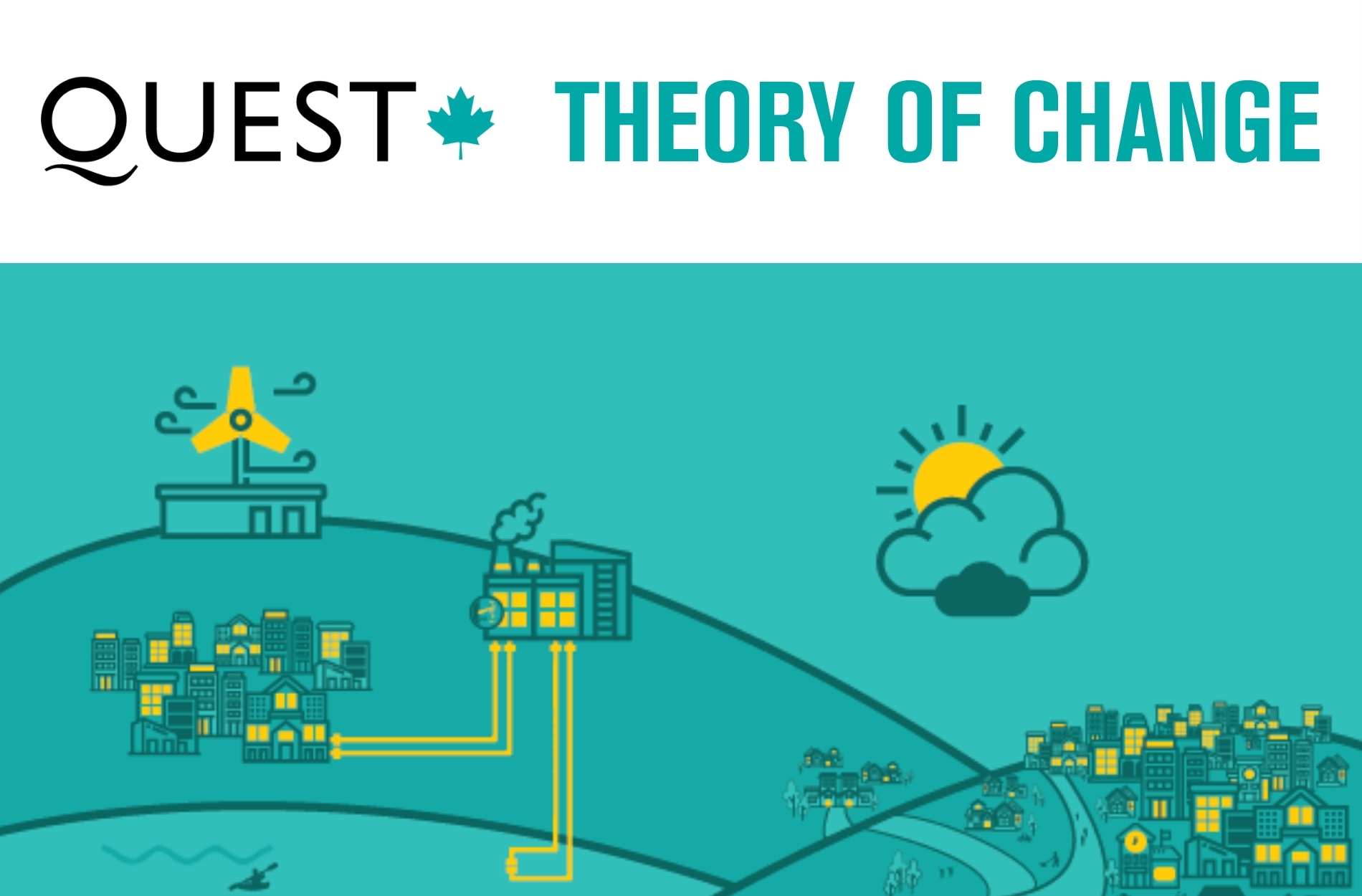
Theory of Change
QUEST Canada’s theory of change seeks to ensure that 500 diverse communities in Canada are implementing durable and just net-zero strategies by 2030.
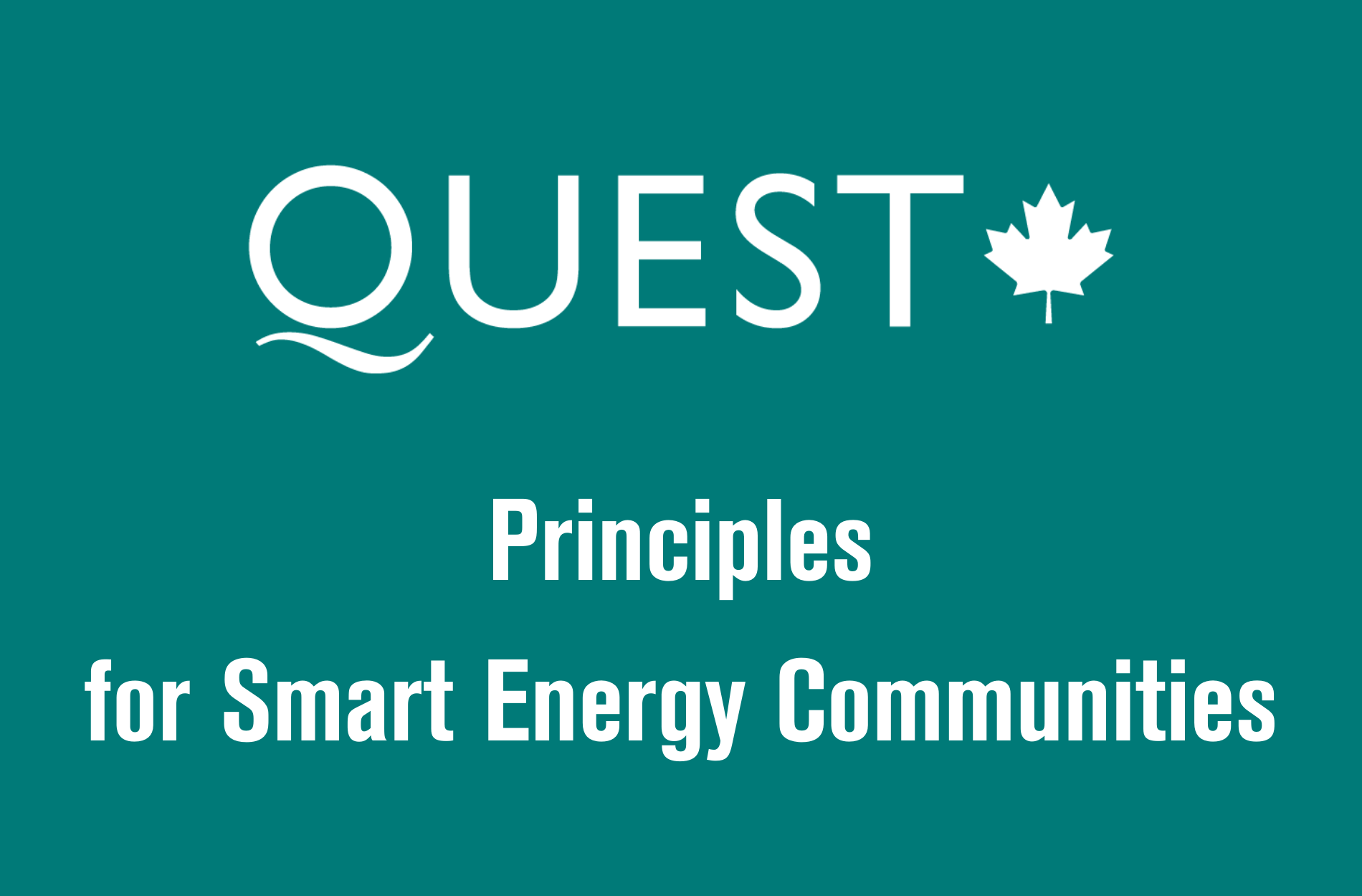
Principles for Smart Energy Communities
A Smart Energy Community seamlessly integrates local, renewable, and conventional energy sources to efficiently, cleanly, and affordably meet its energy needs. It is a coveted, highly livable place to live, work, learn, and play.The successful implementation of Smart...
National Renewable Natural Gas (RNG) Handbook
May 2020 Renewable Natural Gas (RNG) presents a unique opportunity not only to tackle GHG emissions and improve local air quality, but also to advance a circular economy for municipalities. When implemented on a municipal scale, biomethane can also be injected into...

Support for Indigenous Community Energy Planning
Supports for Indigenous Community Energy Planning The inventory is a summary of a jurisdictional scan of existing initiatives supporting community energy planning in Indigenous communities across Canada.[mapsvg id="40729"] Initiative Lead Organization Jurisdiction...

Smart Energy Communities Benchmark
Reports

Getting the Most Out of Your Retrofits
With deep retrofit technology readily available, Canadian municipal building stock is in a unique position to impact the country’s climate targets.

Enabling Low-Carbon Energy Projects for Investment
A final report has been developed to help local governments and community borrowers overcome barriers to the low-carbon energy transition.

Enabling Low-Carbon Energy Projects for Investments
Communities in Canada are increasingly developing local, low-carbon energy projects, but many face road-blocks with regards to financing. Simultaneously, Canadian investors are seeking low-carbon investments, but are challenged to find local opportunities at scale for investment. The Enabling Low Carbon Energy Projects for Investment (ELCEPI) research project aims to offer recommendations and solutions to close these financing gaps, while connecting the barriers and enablers for investment to larger socio-economic issues.
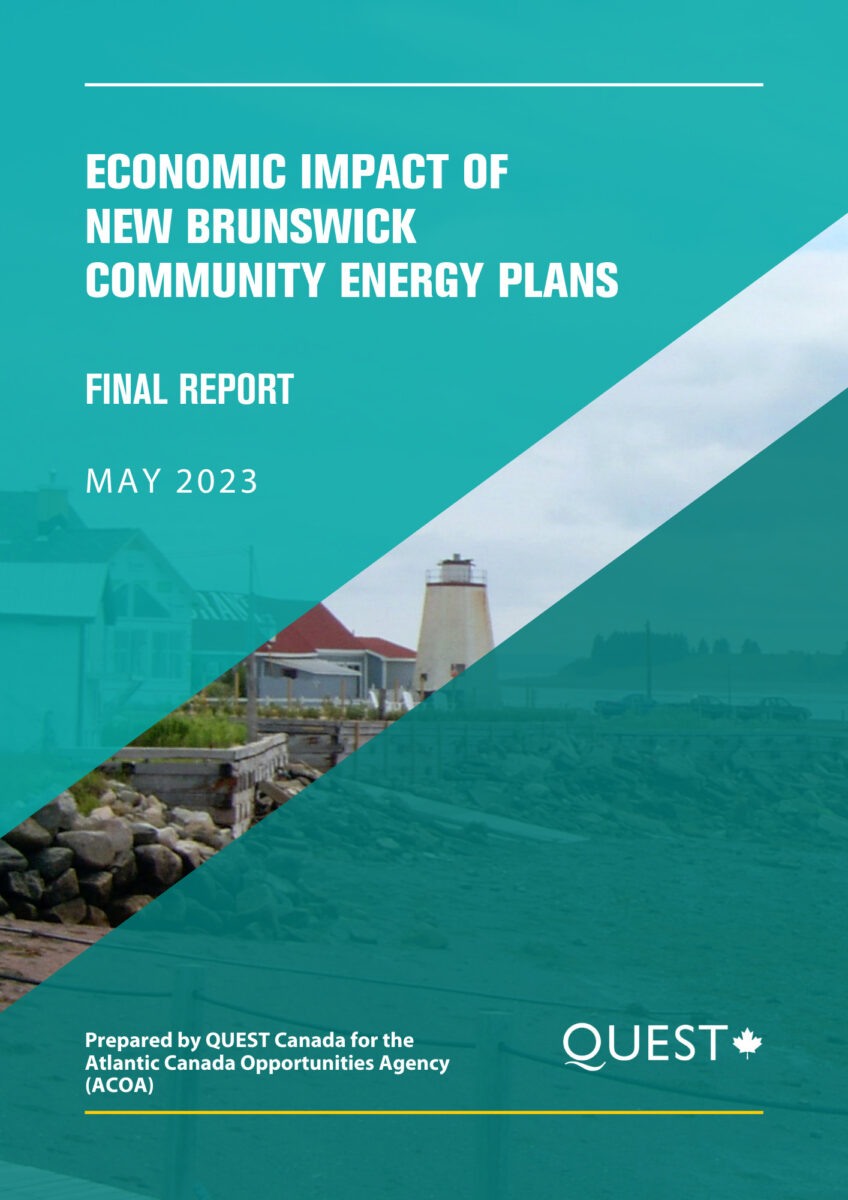
Economic Impact of New Brunswick Community Energy Plans
In 2021 the Atlantic Canada Opportunities Agency (ACOA) engaged QUEST Canada to review existing Community Energy Plans (CEPs, also known as Community Energy and Emissions Plans, Climate Action Plans, etc.) in the province of New Brunswick to determine the potential economic impact at the local and provincial level. QUEST Canada has extensively engaged with New Brunswick’s municipal governments, and their communities, for some time through its Smart Energy Communities Accelerator (SECA) program and has identified and secured collaboration with six communities to undertake an economic impact assessment: Quispamsis, Woodstock, Florenceville-Bristol, Perth-Andover, St. Stephen and Saint Andrews.
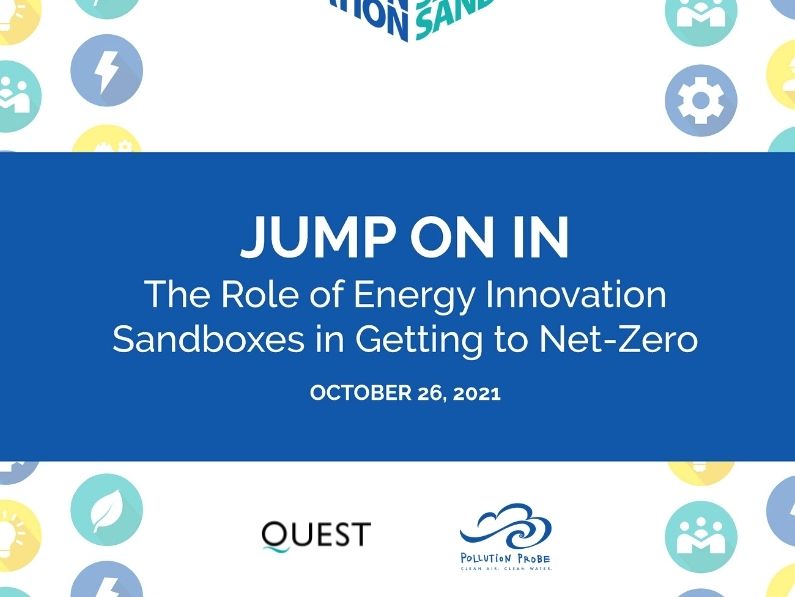
The Role of Energy Innovation Sandboxes in Getting to Net-Zero
August 2020 Renewable Natural Gas (RNG) presents a unique opportunity not only to tackle GHG emissions and improve local air quality, but also to advance a circular economy for municipalities. When implemented on a municipal scale, biomethane can also be injected into...

A State of Renewal – Ontario’s Innovation Sandboxes
August 2020 Renewable Natural Gas (RNG) presents a unique opportunity not only to tackle GHG emissions and improve local air quality, but also to advance a circular economy for municipalities. When implemented on a municipal scale, biomethane can also be injected into...

Pre-Budget Consultation in Advance of Federal Budget 2022

Enabling Meaningful Climate Action in the Building Sector Across Nova Scotia

Renewable Natural Gas (RNG) Handbook for GTHA
August 2020 Renewable Natural Gas (RNG) presents a unique opportunity not only to tackle GHG emissions and improve local air quality, but also to advance a circular economy for municipalities. When implemented on a municipal scale, biomethane can also be injected into...

Economic Impact of New Brunswick Community Energy Plans
Discover the local economic benefits of implementing Community Energy Plans by downloading the workbook and 2 case studies from NB municipalities

Economic Impact of New Brunswick Community Energy Plans: Primer and Workbook

Saint John Case Study: Economic Impact of New Brunswick Community Energy Plans

Sussex Case Study: Economic Impact of New Brunswick Community Energy Plans

District Energy: Building resiliency and community at the YMCA of greater Toronto

Community Resilience Mini-Guide
Webinars
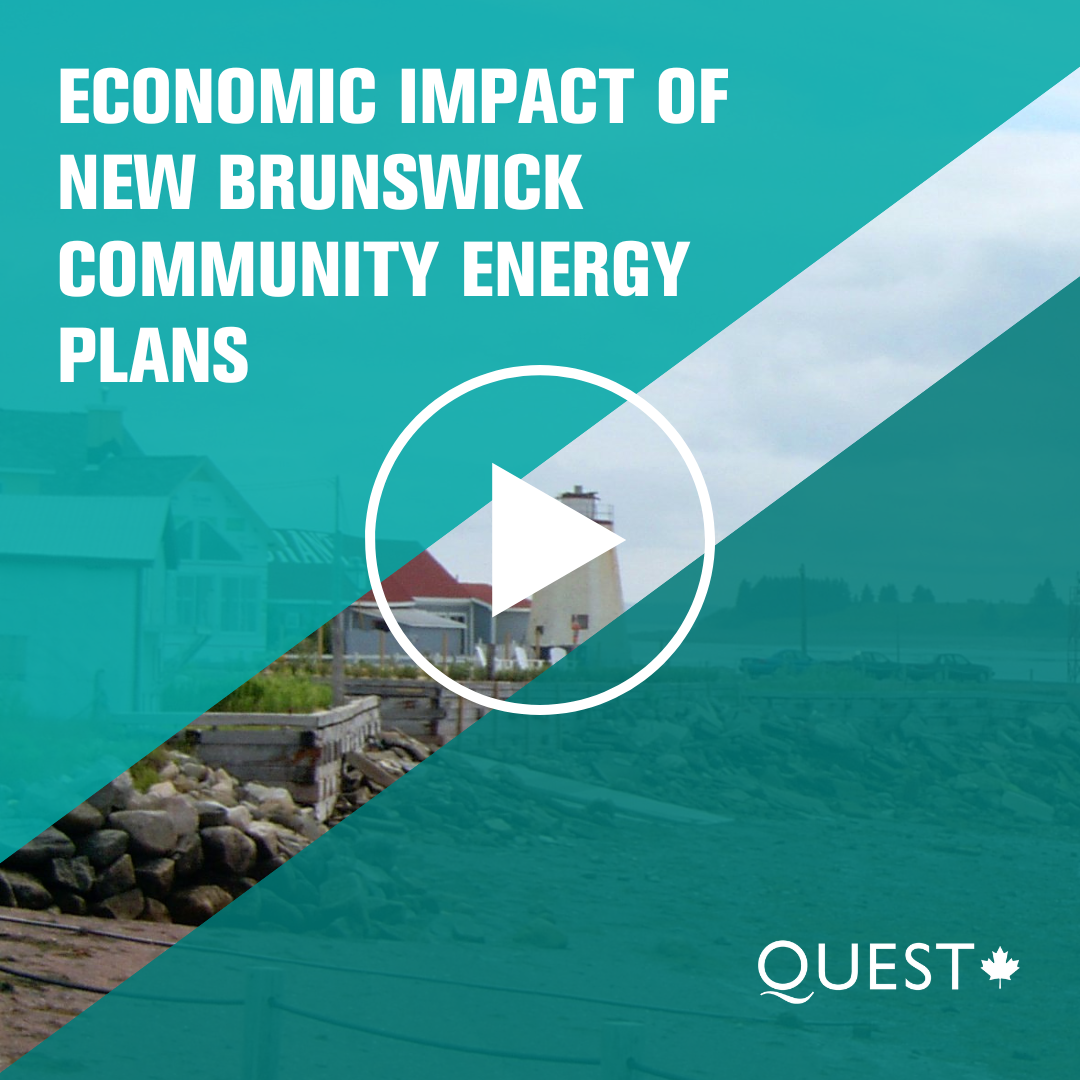
NB-PEI Municipal Working Group Meeting: Economic Impact of New Brunswick Community Energy Plans
The New Brunswick & Prince Edward Island Municipal Working Group is a resource for municipalities engaged in community energy and emissions planning, partnership-building and Smart Energy projects to share their experiences, lessons learned and transfer knowledge about best practices.
In our June 2023 working group meeting, Rob Kerr, Senior Associate at QUEST Canada, provided an overview of the recently released report, “Economic Impact of New Brunswick Community Energy Plans”.
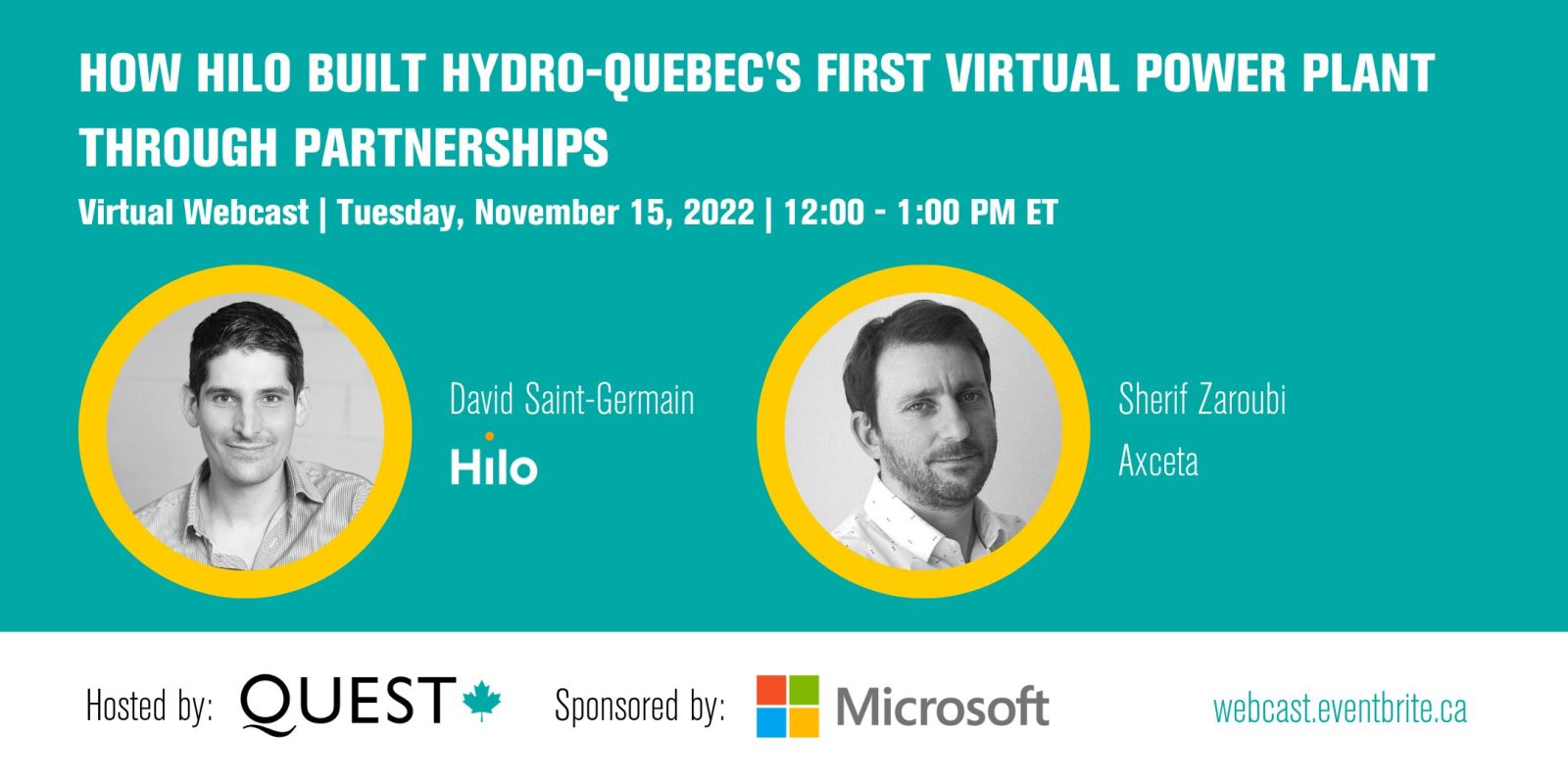
Webcast: How Hilo built Hydro-Quebec’s first virtual power plant through partnership

Webcast: Mixed Reality at Ontario Power Generation

Presentation of Renewable Natural Gas (RNG) handbook for Canadian municipalities
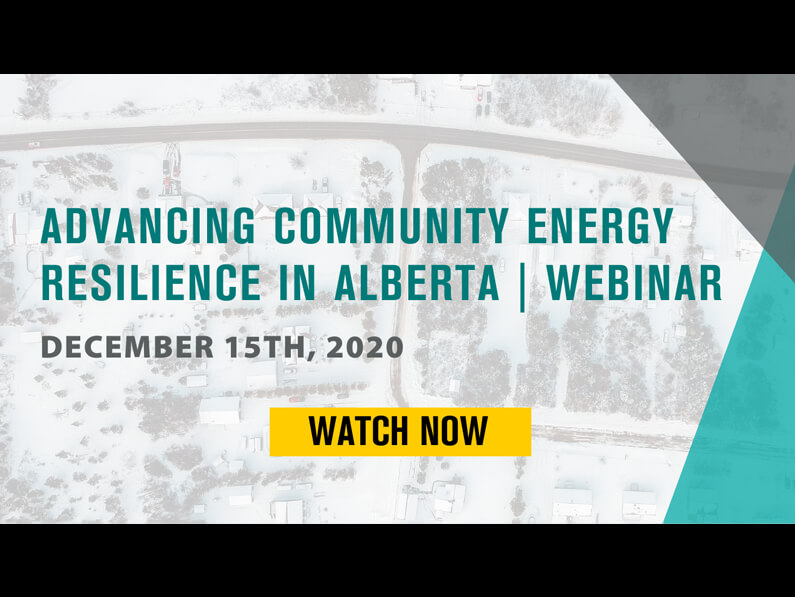
Advancing Community Energy Resilience in Alberta

Innovation Sandboxes – Getting to Deployment: Bridging the Gaps in Energy Innovations in Canada

AIRE Webinar Part 4: Accelerating implementation of renewable energy: a protocol to guide Municipalities
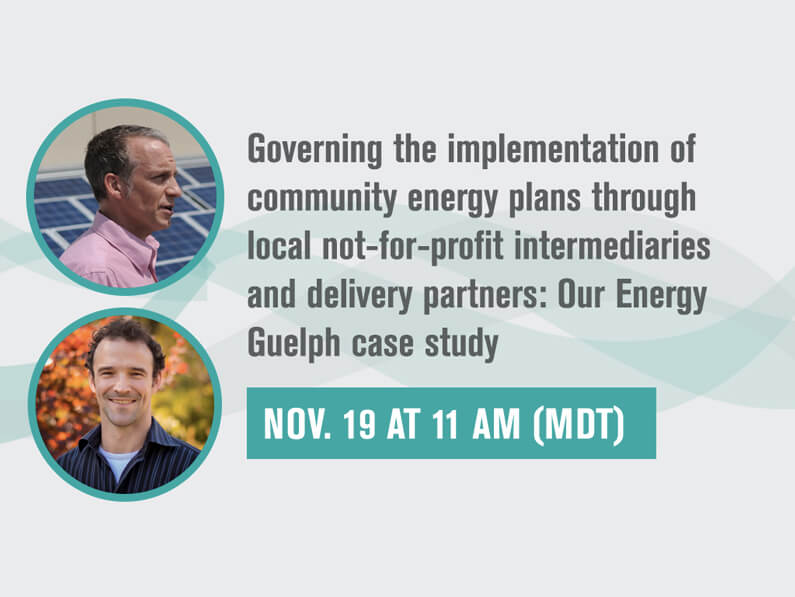
AIRE Webinar Part 3: Governing the implementation of CEP through local not-for-profit intermediaries

Intersection of IoT and Distributed Energy Resources (DERs) ft. Microsoft
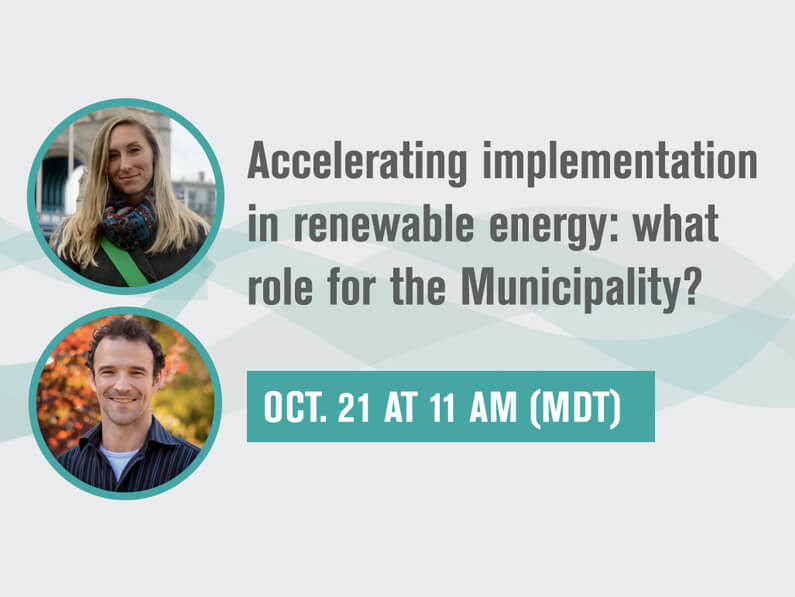
AIRE Webinar Part 2: Accelerating implementation in renewable energy: what role for the Municipality?

Enter the Sandbox: Developing Innovation Sandboxes for the Energy Sector

Premiers pas vers l’élaboration de carrés de sable pour l’innovation dans le secteur énergétique

AIRE Webinar Part 1: Participatory mapping as a tool for virtual and live public engagement

Economic Impact of Community Energy Plans


QUEST Canada helps communities achieve their net-zero emissions goals by offering programs, resources, tools and guidance for developing and implementing Community Energy and Emission Plans (CEEPs), which create economic, environmental, and social benefits.
Our Energy Transition Policy Program (ETPP) – Net-Zero Communities Accelerator – NCA program: Prairies – Atlantic – Ontario – Partnering for Indigenous Community Energy Capacity (PICEC) – Accelerating the Implementation of Renewable Energy in Indigenous Communities (Indig-AIRE) – Mobilizing Net-Zero in Rural and Remote Communities (MNZA) and – Low-Carbon Energy Innovation (LCEI) programs align communities, engage decision-makers, strengthen energy plans, build human resource capacity, increase funding access, drive clean energy projects, offer financial solutions, and raise public awareness.